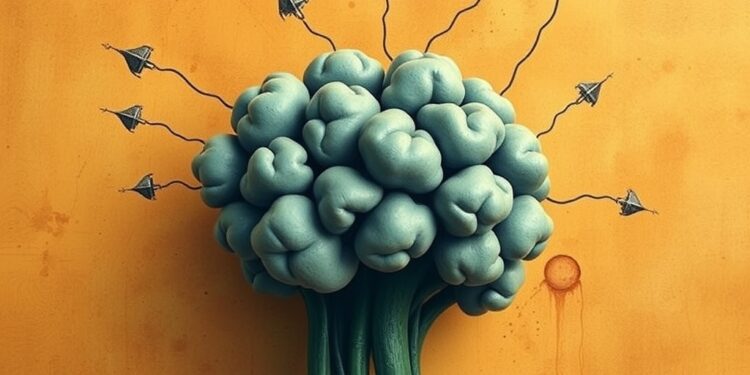Stress management has long been viewed predominantly through a negative lens, frequently associating it with anxiety, burnout, and impaired performance. However, emerging perspectives are beginning to challenge this conventional viewpoint by arguing that a reframe of stress could unlock its potential as a powerful motivational tool. A recent study conducted by Griffith University offers evidence supporting this paradigm shift, suggesting that when individuals adopt a positive stress mindset, the consequences can be both beneficial for personal growth and performance, while not undermining their empathy toward others.
Dr. Jacob Keech, an expert in the domain of stress management, has been investigating stress mindset since 2014, focusing on understanding how individuals’ beliefs about stress can significantly impact their well-being and performance. This research aims to guide efforts in improving resilience and productivity when faced with the challenges that stress frequently presents. Traditional views often limit the discourse to adverse effects, but Dr. Keech’s study highlights the transformative potential of viewing stress from a more holistic perspective.
The researchers embarked on a systematic exploration of the construct of stress mindset, which encompasses how individuals perceive and interpret the influence of stress on their lives. By introducing the concept that stress is not solely a burden but can serve as a catalyst for motivation and personal achievement, the study has opened new avenues for stress management strategies. By fostering a healthy understanding of stress, individuals can cultivate skills that not only enhance their personal effectiveness but also enrich their interactions with others.
Dr. Keech’s study incorporates a stress mindset intervention designed as a brief, 15-minute online program. Participants engage in educational activities that outline both the positive and negative facets of stress, followed by guided imagery exercises. These exercises encourage individuals to visualize the positive outcomes that stress can generate in their lives, ultimately empowering them to rethink their relationship with stress. The structured approach nurtures a balanced perspective, positing that awareness of both sides can fortify resilience.
With increasing discourse around the potential exploitation of this stress mindset, particularly in workplace contexts, skeptics have emerged. A central concern revolves around the risk that cultivated positivity might lead individuals—especially managers—to inadvertently downplay the stressors faced by those around them. Such a scenario raises critical ethical questions about the implications of promoting stress as a mere productivity tool, one that could potentially overlook the genuine emotional and social challenges others encounter.
However, survey results from the participants engaged in Dr. Keech’s study counter these apprehensions. The interventions led individuals not only to manage their stress more effectively but also to maintain a strong sense of empathy. Participants who underwent the stress mindset training were evaluated based on their willingness to support colleagues and friends experiencing stress. The findings showed no significant decline in their readiness to offer help; rather, they demonstrated a balanced approach that recognized their own stress while remaining highly attuned to the distress of others.
This duality underscores the premise that a healthier perception of stress can positively influence interpersonal dynamics without diminishing the emotional support individuals are willing to provide. The experimental design highlights that fostering a more constructive attitude toward stress does not equate to endorsing a toxic work culture where employees feel pressured to suppress their struggles. Instead, it reinforces that the efficacy of stress as a motivational tool can coexist with a compassionate workplace.
To emphasize the importance of these findings, Dr. Keech advocates continued vigilance against potential pitfalls associated with stress mindset promotion. In environments where leadership prioritizes high performance, it is paramount to ensure that employees are not unduly burdened. The study elucidates that managers should embrace strategies that encourage productivity while also remaining sensitive to the emotional and psychological welfare of their teams.
In an era marked by relentless pace and performance pressures, the research presents a necessary dialogue on stress’s dual nature as both a potential hindrance and a powerful motivator. Schools, workplaces, and community organizations can leverage this knowledge to create environments conducive to growth and support, fostering cultures that celebrate resilience while recognizing the humanity in individuals. By strategically implementing stress mindset interventions, there is an opportunity to cultivate not only personal success but also collective well-being.
Finally, the implications of Dr. Keech’s study extend beyond the academic realm. As the findings are published in the International Journal of Stress Management, they contribute to a growing body of evidence advocating for adaptive strategies in stress management. This research aligns with a broader movement aimed at altering how society conceptualizes stress, challenging old paradigms while promoting innovative approaches that embrace both the individual and collective dimensions of stress management.
The exploration of stress mindset is more than an academic pursuit; it has practical applications that can reshape personal experiences and enhance communal understanding of well-being. As individuals and organizations delve into these principles, the hopeful outcome is a future where stress is seen not as an adversary but as an integral element of the human experience that, when harnessed correctly, can propel us toward our fullest potential.
Through Dr. Keech’s targeted interventions, we are reminded of the complex interplay between stress and productivity, where the goal is not to eliminate stress entirely but rather to cultivate a meaningful relationship with it that supports both personal and social resilience. It’s time to rethink our approach to this ubiquitous aspect of life, one that has the power to enhance our performance while also deepening our connection to those around us.
Subject of Research: People
Article Title: Stress for Success
News Publication Date: 9-Apr-2025
Web References: https://doi.org/10.1037/str0000357
References: Not available
Image Credits: Not available
Keywords: Stress management, Motivation, Psychological science, Personality psychology, Self help, Neuropsychology, Psychological theory, Social psychology, Social development, Sociology, Human relations.




